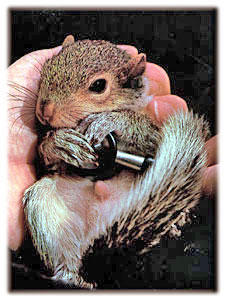| Chest Pain:
Is It your Heart or Not?
This question is asked numerous times daily
by both lay and medical personnel and the answer is not
always as straightforward as you may think. The medical
literature describes “classic” heart-related
chest pain (or angina) as an aching, burning sensation
in the mid-chest and/or left upper arm or jaw brought
on by exercise and relieved with rest. Unfortunately,
as in other areas of medicine, many people, especially
women, have heart-related chest pain that is not classic
or typical. However, certain factors can help guide you
through this quandary. The first key to understanding
your situation is to define your risk status for heart
disease. These risk factors are as follows:
- Smoking
- Obesity
- Personal history of heart attack, stroke, known
blockages in the coronary or other blood vessels.
- Personal history of high blood pressure
- Male 40 or older or female of 50 or older
- Family history of heart disease in a first degree
relative or numerous members of extended family
- Elevated cholesterol and triglyceride levels in
certain people.
 Obviously
the more risk factors you have, the greater the chance
that your chest pain is heart-related. Historical factors
can be helpful in assessing the cause of chest pain. Pain
aggravated by exertion and relieved with rest is suspicious.
Heart related chest pain (especially in women), may occur
without exertion, and would be of concern in a person
with numerous risk factors. Obviously
the more risk factors you have, the greater the chance
that your chest pain is heart-related. Historical factors
can be helpful in assessing the cause of chest pain. Pain
aggravated by exertion and relieved with rest is suspicious.
Heart related chest pain (especially in women), may occur
without exertion, and would be of concern in a person
with numerous risk factors.
Other aggravating and relieving factors
can be helpful in differentiating the cause of pain. Chest
pain occurring just after a meal can be cardiac, however
this is less likely if relieved with antacids or belching.
The location of pain is of some help. Right-sided chest
pain is generally not heart related. The type of pain
may be useful in differentiating a cardiac cause of pain
from a non-cardiac cause. Superficial pain that worsens
with deep breathing and can be reproduced by pressing
on the chest is unlikely to be heart-related. If the pain
does not abate within an hour, you should seek urgent
medical attention. Remember, even medical professionals
have great difficulty in differentiating heart-related
chest pain form non-cardiac chest pain. If you do have
heart-related chest pain, time is of essence—the
sooner you are diagnosed, the more quickly emergency treatment
can be initiated. If you have a prior history of heart
disease, you could take a baby aspirin (81 mg), but no
more until you have sought medical attention. A bleeding
ulcer can cause chest pain as well, and aspirin certainly
has the potential to be harmful in that situation.
If your chest pain is not heart-related,
further, less-urgent testing can be done to determine
the cause. Other causes of non-cardiac chest pain include
gastrointestinal conditions such as heartburn and ulcers,
pulmonary conditions such as bronchitis and pneumonia,
and musculoskeletal conditions such as a pulled muscle
or inflamed cartilage in the chest or arm area. The bottom
line is if in doubt, check it out. A round-trip ticket
back home with a non-cardiac chest pain diagnosis is certainly
preferable to a one-way ticket to the hospital with a
delayed diagnosis of cardiac chest pain.
Anonymous physician
Other Articles:
|